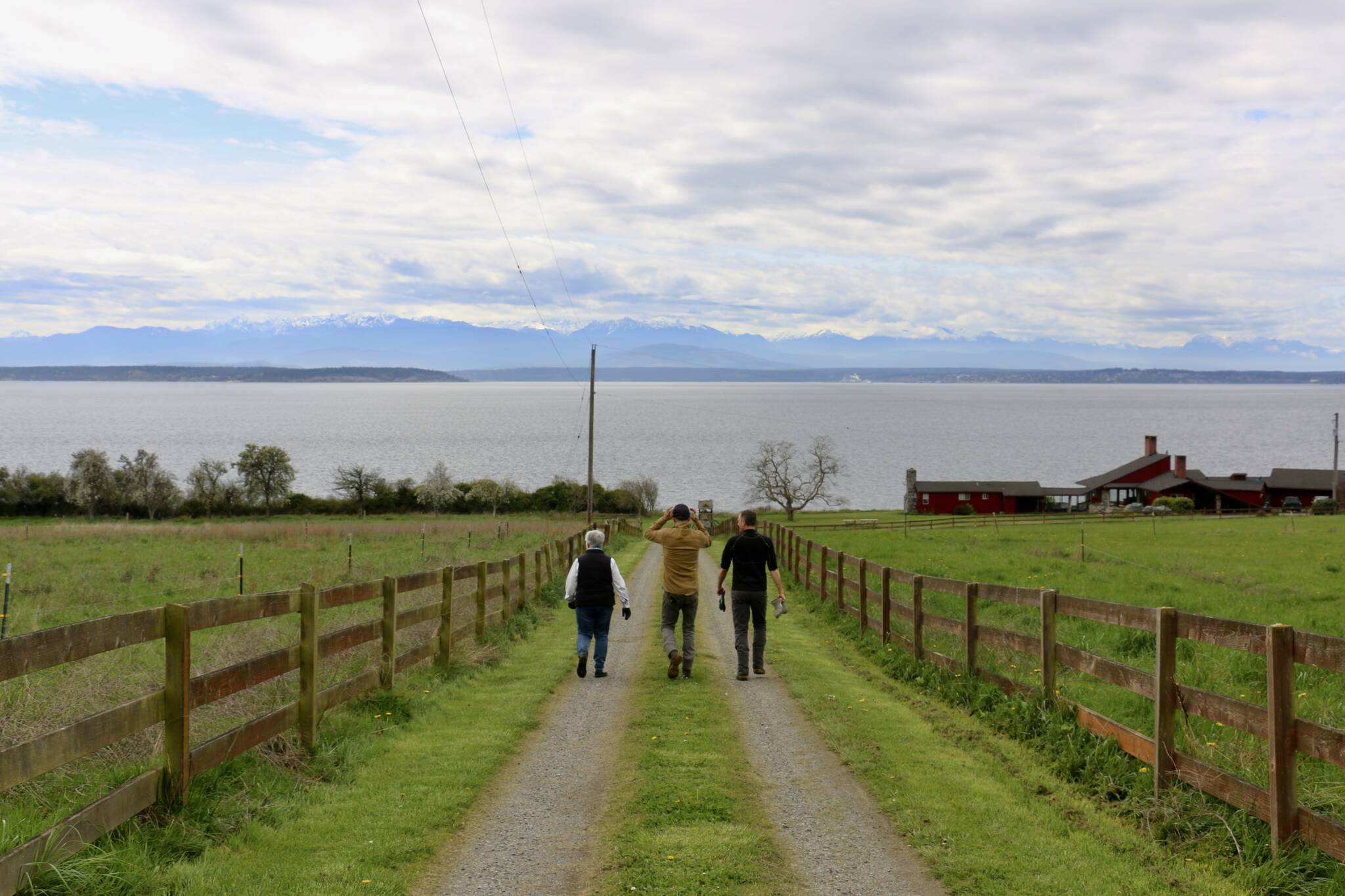A Central Whidbey property owned by the Whidbey Camano Land Trust is set to become the site of a partnership that has been years in the making.
The Organic Farm School, a Clinton-based nonprofit organization that provides training to new farmers, is launching an incubator farm program at the Keystone Farm and Forest Preserve, a 226-acre waterfront parcel that the land trust purchased last summer.
The parcel was on the market for residential development when the land trust assumed ownership. Now, the land trust is engaging in projects to preserve and promote the health and resiliency of the 175 acres of forest and two-thirds of a mile of shoreline. The organization has enlisted the farm school’s help to manage the historic working farm that makes up the rest of the site.
An incubator site, farm school Executive Director Judy Feldman explained, is a farm where farmers who are in the early stages of their careers have access to shared supplies and equipment, mentor oversight and access to markets while they are getting into the rhythm of the industry.
The farm school had been searching for a site in collaboration with the land trust to host this program for around three years, Feldman said. When land trust Executive Director Ryan Elting contacted her in December 2021 about the Keystone Preserve potentially providing a locale for the program, she knew it was a “once in a lifetime opportunity.”
“Both of us knew it was going to be a really exciting, really capacity-building move,” she said.
Farm school volunteer coordinator Kirsten Murray said school personnel are also interested in implementing a “middle ground” farming program for farmers who aren’t ready for an incubator experience to trial two or three crops in a lower-intensity setting.
The property now known as the Keystone Preserve has been producing food on Whidbey Island for centuries. It was prairie land maintained by the Lower Skagit Tribe until retired Capt. William Robertson and his family homesteaded the property around 1850. The farm has remained active ever since.
Feldman said this partnership is an excellent opportunity to demonstrate regenerative agriculture practices and showcase ways the farm school’s mission aligns with that of the land trust.
“Those who are more drawn to participating in the agricultural regenerative revolution, and those that are more interested in participating in keeping wild places wild — it’s a meeting place for all of us to be having conversation and dialogue around the intersection of those two things,” Murray said.
The middle-ground program will likely launch as early as January or February of the coming year, while the incubator program is scheduled to begin in 2025, the same time the land trust expects to open the property to the public. The farm school will continue to run its regular training program in Maxwelton Valley.
“The Whidbey Camano Land Trust is thrilled to be partnering with the Organic Farm School to bring regenerative agriculture to Keystone Preserve, to showcase how those practices complement our overall conservation and restoration work, when Keystone opens to the public in 2025,” Elting said.
The farm school will host work parties to clean up the site and prepare the farm for its upcoming programming from noon to 2 p.m. May 24 and 10 a.m. to noon June 17.



